 The VR4i postdoc Fernando Argelaguet Sanz has successfully installed his works with VR Juggler in Immersia
The VR4i postdoc Fernando Argelaguet Sanz has successfully installed his works with VR Juggler in Immersia


We are collaborating with the Fraunhoffer IGD through the INRIA-Frauhnoffer VCore project.
This project is a shared collaboration between Fraunhoffer IGD and five INRIA research centers : Rennes, Grenoble, Sophia, Lille and Saclay.
On the INRIA side, the project started in october 2011, with a four years outlook, as an ADT.The goal of the project is to build a modular shared source software framework, fostering the development of new and unique research topics and application areas, which can be used alike by research teams and innovative companies. The goal is to make it a de facto standard, favoring interoperability between various developments in the mixed reality area. Research teams will get a sound software base that helps them focus their efforts on innovative software
libraries or applications. Companies will benefit from implementations of state-of-the-art algorithms as well as a full-fledged framework strongly connected with 3D-related emerging standards like Collada, X3D and WebGL.
![]()
This project is also related to the INRIA SOFA project.
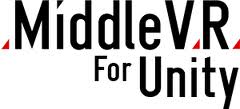
MiddleVR is a middleware edited by I’m In VR.
Immersia is used to beta-test the product.
Some realisations in Immersia with I’m in VR
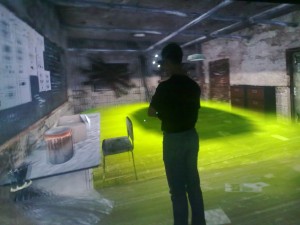
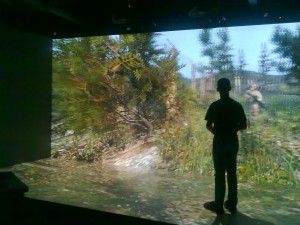
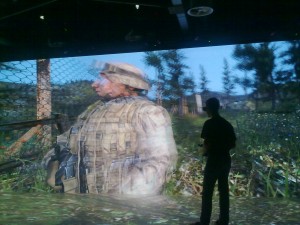
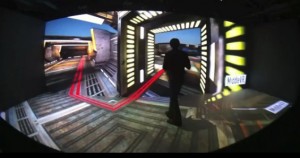

Collaviz is an innovative multi-domain remote collaborative platform (project ANR-08-COSI-003-11 funded
by the french national research agency) for the simulation-based design applications.
Collaviz involves 6 Academic partners (ECP, EGID, INPT, INSA Rennes, LIRIS, Scilab) and 11 Industrial
partners (Artenum, BRGM, Distene, Faurecia, Medit, MCLP Consulting, NECS, Oxalya, TechViz, Teratec)
The major value brought by Collaviz to the scientific and industrial community is to make remote analysis and
collaboration easily available and scalable. Web-based technologies, on the top of shared high-performance
computing and visualization centers, will permit researchers and engineers handling very large data sets, including
3D data models, by using a single workstation, wherever in the world. Just a “standard” internet connexion
will be needed. The classical approach is not adapted anymore: simulation-based design applications
tend to generate Terabytes and even Petabytes of data.
Collaviz deals with four major challenges:
We have also deployed the Collaviz framework between London (in the CAVE of the University College
of London) and Rennes (in our CAVE), in order to setup an experiment of collaborative manipulation of a
clipping plane inside 3D scientific data. This first real deployment of Collaviz is a success, it has allowed
efficient co-manipulation of a shared 3D object between two really distant users. More details here.
Some realisations with Collaviz in Immersia
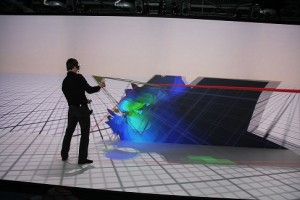
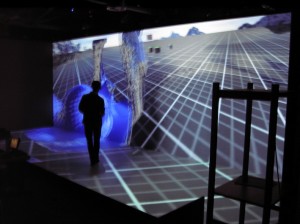

OpenMASK (Modular Animation and Simulation Kit) is a platform for modular applications development and execution in animation, simulationand virtual reality fields.
In OpenMASK, the modularity unit is the simulated object. It can be used to describe an entity or a virtual object behaviour or motion control as well as input devices. Building a virtual environment with OpenMASK consists in selecting and configuring the appropriate simulated objects, and choosing an execution kernel fulfilling the application needs. Of course, new simulated objects classes have to be built if they do not already exist. They can be also reused in other applications.
OpenMASK comes with multi-site (for distributed applications: distributed virtual reality, distributed simulation …) and/or multi-threaded (for parallel computations) kernels. These kernels enable off-line simulation as well as interactive animation.
We are developing meta-model tools to built openMASK Virtual Reality applications. It is an Eclipse plugin. It allows you to design, to generate, to document OSOs and to store this classes in a mySQL database. With this data base an editor allows you to design a VR application and built its configuration files.
Some realisations with OpenMASK in Immersia
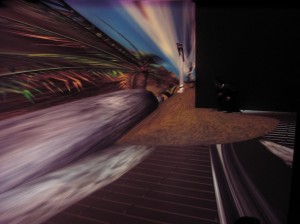
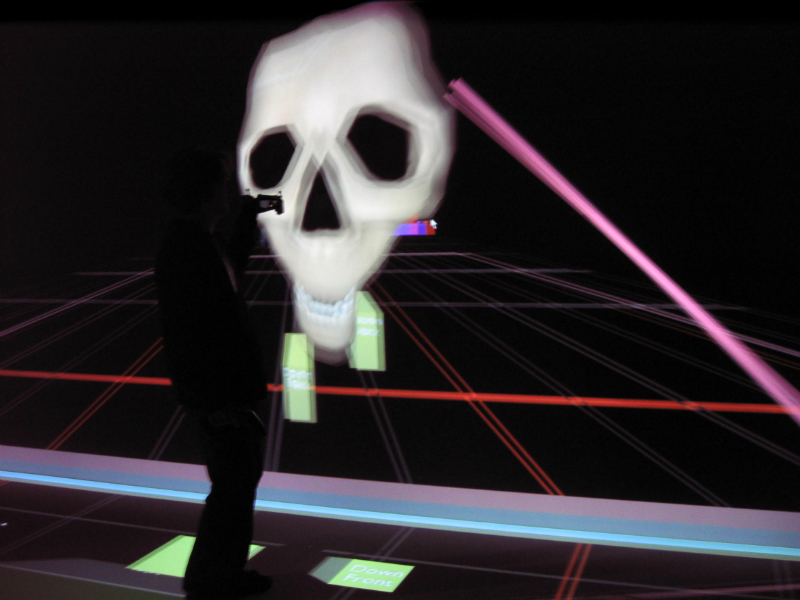
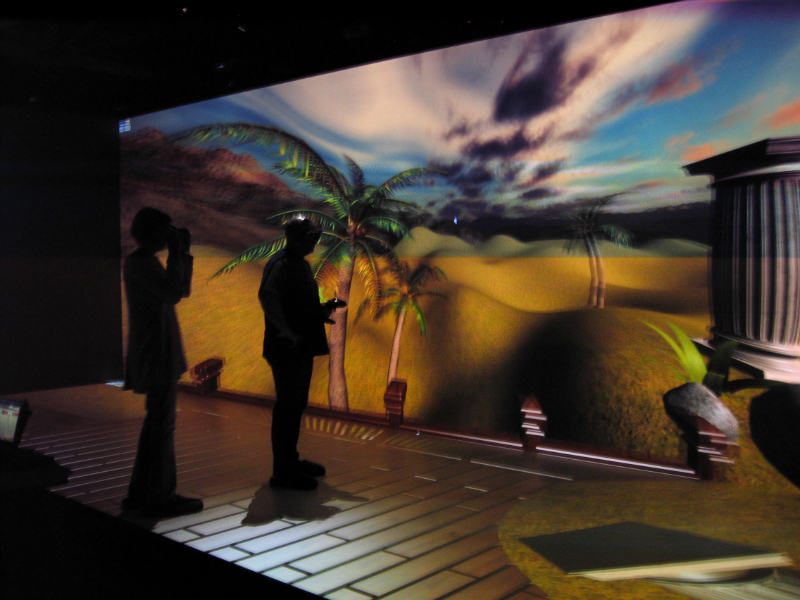
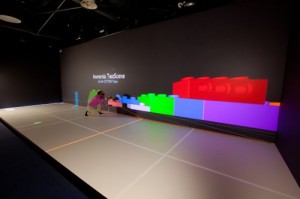
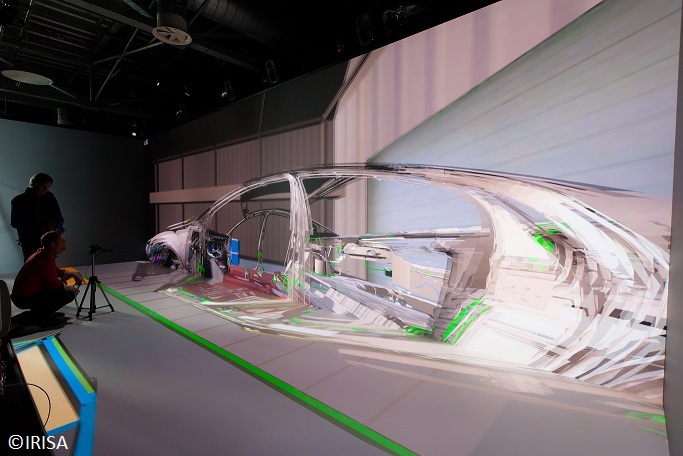
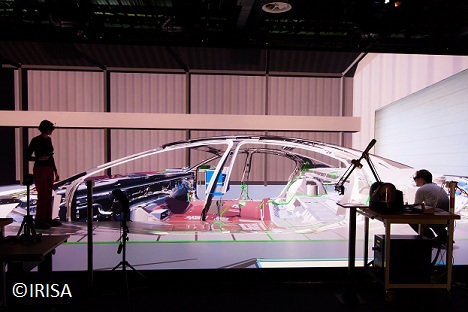

Several software solutions have been successfully deployed and tested in the Immersia platform.